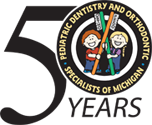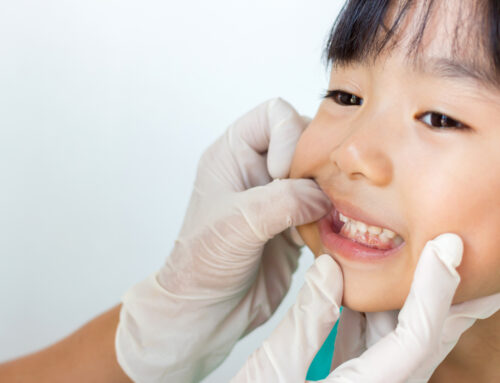Parents get so used to their child’s mannerisms, and mouth breathing, which seems harmless, isn’t noticed at all at first. Little kids with their mouths parted and pouting particularly look so cute. It’s in older kids that mouth breathing is often noticed.
But once detected, mouth breathing is a bad habit we should break by treating the cause.
First, why is mouth breathing bad?
- It can affect speech. Kids with open mouths tend to lisp: they find S sounds difficult, and may have what’s called the tongue-thrust-swallowing pattern, which caused the tongue to push forward during speech or swallowing.
- It can affect facial growth. If left untreated, a child’s open mouth can interfere with facial development, leading to flat cheekbones and lower muscle tone, a longer face, droopy eyes, a narrower palate, a smaller lower jaw.
- It can slow down or reverse the efficacy of braces. Spaces between teeth are more difficult to close, and once the braces are removed, teeth stability are compromised when your child breathes through his/her mouth, making a relapse a possibility.
- It can cause sleep apnea. Mouth breathers during the day are probably mouth breathers all night long, which presents a problem with oxygen intake. If the brain’s oxygen supply is interrupted (sleep apnea) during sleep, this affects your child’s growth and learning abilities with fatigue and brain fog during the day at school or at home.
What causes mouth breathing?
- Jaw alignment issues. In this case, the mouth is already open, and your child simply learned to breathe through the mouth due to the way the skeletal pattern aligned the jaws and adjacent soft tissues
- They have/had a thumb sucking habit. The mouth develops around thumb sucking, shaping the lips, teeth and palate around it, leaving space for mouth breathing.
- They have/had an airway problem. Kids have allergies, and kids love activities. A little clogged nose won’t stop them from playing– they’ll simply breathe through their mouth! If the mucus problem of the allergy is untreated, children can pick up the habit of mouth breathing.
- They have a restricted lingual frenum — or a tethered tongue. Also called “tongue-tie,” this is a medical condition where the position of the tongue keeps the mouth slightly open and speech difficult. A simple surgical procedure can release the tongue so it can go to its normal position against the palate to help mold the upper jaw to an appropriate shape. A myofunctional therapist can help the patient with exercises before and after surgery.
What we can do:
As parents, you’ll have the most information about your child’s mouth breathing habits. Once you notice it, monitor the mouth breathing.
- How often does your child do it?
- Is he or she visibly sniffling? Often, they don’t sniffle at all. Whatever obstruction or habit that is causing the mouth breathing is already established, and instead of sniffling, the child simply breathes through the mouth.
- Are there other signs of allergies, like itching and redness?
- Have there been airway problems in the past that may have come back without your child complaining about it?
- Does mouth breathing happen during an activity or during rest?
Myofunctional therapists refer their patients to us, and vice versa. Orthodontists and myofunctional therapists often work together to correct the issues behind mouth breathing. We can point you in the right direction to other specialists (for sleep apnea, for example) once we have determined and treated other causes.
As we learn more and more about this issue, relationships to other medical concerns like ADHD and focus in school have been tied to this oral problem. Please don’t hesitate to discuss your child’s mouth postures and habits with us at your next visit.
About Pediatric Dentistry and Orthodontic Specialists of Michigan, the offices of Drs. Plunkett, Ralstrom, Makowski, Thanasas, Ker, and Associates
Pediatric Dentistry and Orthodontic Specialists of Michigan have specialized in pediatric dentistry and orthodontics since 1968. Our family-friendly and newly renovated office gives patients and families a more comfortable and consistent experience with dentistry from the very beginning. Our pediatric dentists treat children from newborn to 18 years of age while our orthodontists provide care for both children and adults and are proud to be Premier Providers of Invisalign and Invisalign Teen services. The ability to treat all patients with compassion and individuality, including those that may have special needs reaches beyond our facility, which has treatment rooms available for children who require additional privacy and customized care options. We pioneered valued hospital affiliations to allow dental services to be performed at DMC Children’s Hospital and St. John Macomb Hospital, when appropriate or necessary, and our specialists are also proud to be on staff at Henry Ford and Beaumont hospitals.





